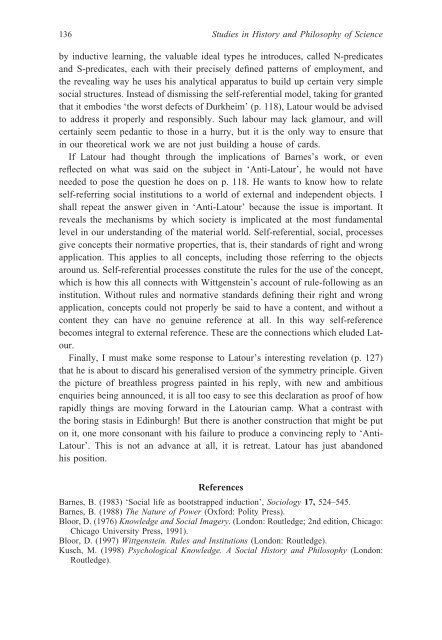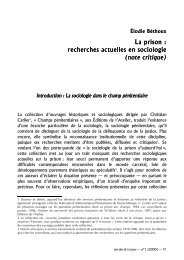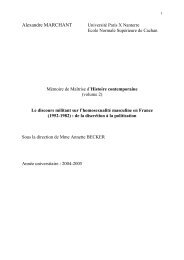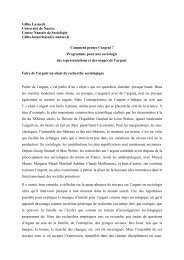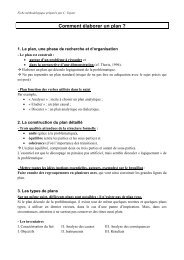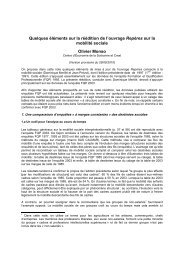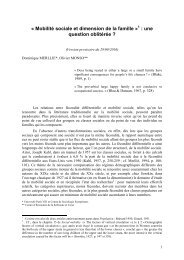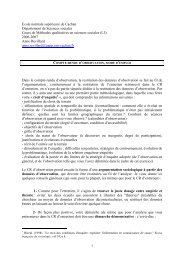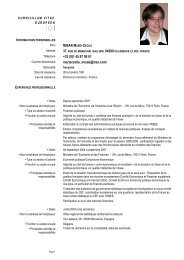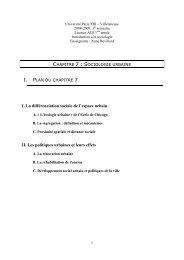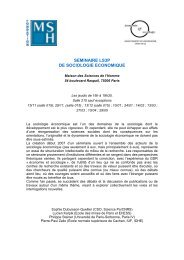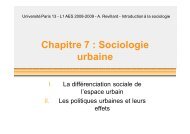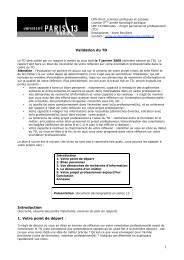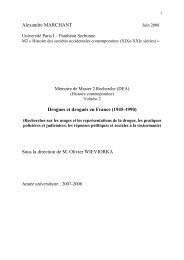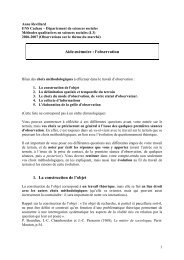DISCUSSION Reply to Bruno Latour David Bloor* - Melissa
DISCUSSION Reply to Bruno Latour David Bloor* - Melissa
DISCUSSION Reply to Bruno Latour David Bloor* - Melissa
You also want an ePaper? Increase the reach of your titles
YUMPU automatically turns print PDFs into web optimized ePapers that Google loves.
136 Studies in His<strong>to</strong>ry and Philosophy of Scienceby inductive learning, the valuable ideal types he introduces, called N-predicatesand S-predicates, each with their precisely defined patterns of employment, andthe revealing way he uses his analytical apparatus <strong>to</strong> build up certain very simplesocial structures. Instead of dismissing the self-referential model, taking for grantedthat it embodies ‘the worst defects of Durkheim’ (p. 118), La<strong>to</strong>ur would be advised<strong>to</strong> address it properly and responsibly. Such labour may lack glamour, and willcertainly seem pedantic <strong>to</strong> those in a hurry, but it is the only way <strong>to</strong> ensure thatin our theoretical work we are not just building a house of cards.If La<strong>to</strong>ur had thought through the implications of Barnes’s work, or evenreflected on what was said on the subject in ‘Anti-La<strong>to</strong>ur’, he would not haveneeded <strong>to</strong> pose the question he does on p. 118. He wants <strong>to</strong> know how <strong>to</strong> relateself-referring social institutions <strong>to</strong> a world of external and independent objects. Ishall repeat the answer given in ‘Anti-La<strong>to</strong>ur’ because the issue is important. Itreveals the mechanisms by which society is implicated at the most fundamentallevel in our understanding of the material world. Self-referential, social, processesgive concepts their normative properties, that is, their standards of right and wrongapplication. This applies <strong>to</strong> all concepts, including those referring <strong>to</strong> the objectsaround us. Self-referential processes constitute the rules for the use of the concept,which is how this all connects with Wittgenstein’s account of rule-following as aninstitution. Without rules and normative standards defining their right and wrongapplication, concepts could not properly be said <strong>to</strong> have a content, and without acontent they can have no genuine reference at all. In this way self-referencebecomes integral <strong>to</strong> external reference. These are the connections which eluded La<strong>to</strong>ur.Finally, I must make some response <strong>to</strong> La<strong>to</strong>ur’s interesting revelation (p. 127)that he is about <strong>to</strong> discard his generalised version of the symmetry principle. Giventhe picture of breathless progress painted in his reply, with new and ambitiousenquiries being announced, it is all <strong>to</strong>o easy <strong>to</strong> see this declaration as proof of howrapidly things are moving forward in the La<strong>to</strong>urian camp. What a contrast withthe boring stasis in Edinburgh! But there is another construction that might be pu<strong>to</strong>n it, one more consonant with his failure <strong>to</strong> produce a convincing reply <strong>to</strong> ‘Anti-La<strong>to</strong>ur’. This is not an advance at all, it is retreat. La<strong>to</strong>ur has just abandonedhis position.ReferencesBarnes, B. (1983) ‘Social life as bootstrapped induction’, Sociology 17, 524–545.Barnes, B. (1988) The Nature of Power (Oxford: Polity Press).Bloor, D. (1976) Knowledge and Social Imagery. (London: Routledge; 2nd edition, Chicago:Chicago University Press, 1991).Bloor, D. (1997) Wittgenstein. Rules and Institutions (London: Routledge).Kusch, M. (1998) Psychological Knowledge. A Social His<strong>to</strong>ry and Philosophy (London:Routledge).


